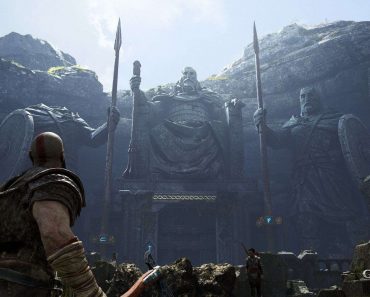
The cultural‑political clash in the U.S. has in recent years evolved into something resembling a civil war. The issues are incendiary, emotions intense, and it appears hope for bridging the divide has evaporated. Few filmmakers have dared to explore these fault lines in a way that isn’t clearly biased toward one side. Yet in recent months two films have appeared that attempt a more nuanced position.
The first is Eddington by Ari Aster, which examines a conflict between a sheriff and a mayor in a New Mexico town, set against the backdrop of hot‑button issues from the past half‑decade — ranging from the COVID‑19 pandemic to the Black Lives Matter movement.
Bugonia – Trailer
(Courtesy of Tulip Entertainment)
Now comes the third in this trend: Bugonia, directed by Yorgos Lanthimos. It is based on characters that represent extreme cultural‑political divides. The story concerns a young biotech CEO kidnapped by two men who believe she is running an alien conspiracy against humanity. Unlike many of Lanthimos’ earlier films, this one features a more linear and mostly logical narrative. It isn’t a surreal allegory (like The Lobster), but a clear conflict‑driven plot.
The film is adapted from the 2003 low‑budget South Korean film Save the Green Planet! by Jang Joon‑hwan, which became a cult key work of Korean cinema. Jang was originally set to direct the U.S. remake, but in early 2024 the project passed to Lanthimos.
Changes were also made to the kidnappers. In the original, they were an unstable young man and a young woman in love with him; in Bugonia the abduction is led by Teddy Gatz (Jessie Plemons), an obsessive, highly intelligent and seemingly unhinged man whose political identity has shifted over time — from far‑right extremism to eco‑terrorist conspiracism. His cousin Don (Aidan Delbis), a plump, boyish, neuro‑divergent figure, is dragged along. Together, the cousins personify a kind of emotional and sexual frustration that drives young men in this era of political strife toward violence — what contemporary discourse labels “incels.”
The presence of the beautiful captive woman (or the alien posed as such) may exacerbate sexual tensions. After the kidnapping, the CEO’s head is shaved — Teddy claims her hair acts as an antenna through which the Andromeda aliens communicate — and her face and body are smeared with a thick white anti‑allergy cream. Teddy, fearful she might manipulate them with her female charms, even persuades Don to undergo chemical castration.
Teddy is a beekeeper, and he believes that pesticides produced by Axolit — the biotech firm led by Michelle Fuller — are responsible for Colony Collapse Disorder (CCD), the mysterious phenomenon in which worker bees abandon their hives, leading to ecological disaster. Many scientists attribute CCD to pesticide use, and Teddy sees it not only as corporate negligence but as a trial run for alien species from Andromeda to wipe out humanity.
His motives are not purely ideological. His mother, now terminally ill, was an unwitting participant in Axolit’s medical trials. The meager compensation they received only fueled Teddy’s desire for revenge. His plan is to torture Fuller until she confesses the conspiracy. With her cooperation, he believes he can negotiate with the aliens to spare the human race.
The film’s title, Bugonia — a fusion of the Greek words for “ox” and “birth” — refers to an ancient myth in which bees were said to spontaneously emerge from the carcass of a cow. According to Greek mythology, Aristaeus, patron of rural crafts, taught beekeeping through this story. This isn’t Lanthimos’ first film to echo Greek mythology; The Killing of a Sacred Deer (2017) invoked the tale of Iphigenia at Aulis to explore guilt and sacrifice. Here, the reference suggests a world detached from myth and perhaps unworthy of survival.
The torture scenes from the original Korean film have been toned down (though still intense for sensitive viewers), while the adapted screenplay, by Will Tracy, adds sharp, contemporary dialogue about technology, capitalism and social manipulation. A large portion of the film takes place during Fuller’s captivity, where Teddy demands a confession, and Fuller counters with manipulative rhetoric, attempting to outwit him. Tracy’s writing remains as quick and intelligent as in his past work — Succession, The Menu, The Regime — without dumbing down for audiences.
Less effective is a new subplot that expands Fuller’s backstory — an addition absent from the original that somewhat undercuts the logic of the film’s climactic finale. Explaining why would spoil a major plot twist, but suffice it to say, it’s a bold move.
Bugonia marks the latest collaboration between Stone and Lanthimos, who have worked together since 2018 on three feature films (The Favourite, Poor Things, Kinds of Kindness), as well as a short film and music video. Stone won her second Oscar for Poor Things, and her performance in Bugonia is another demanding role — tonally different, but no less impressive. Their partnership continues to be one of the most compelling in contemporary cinema.









